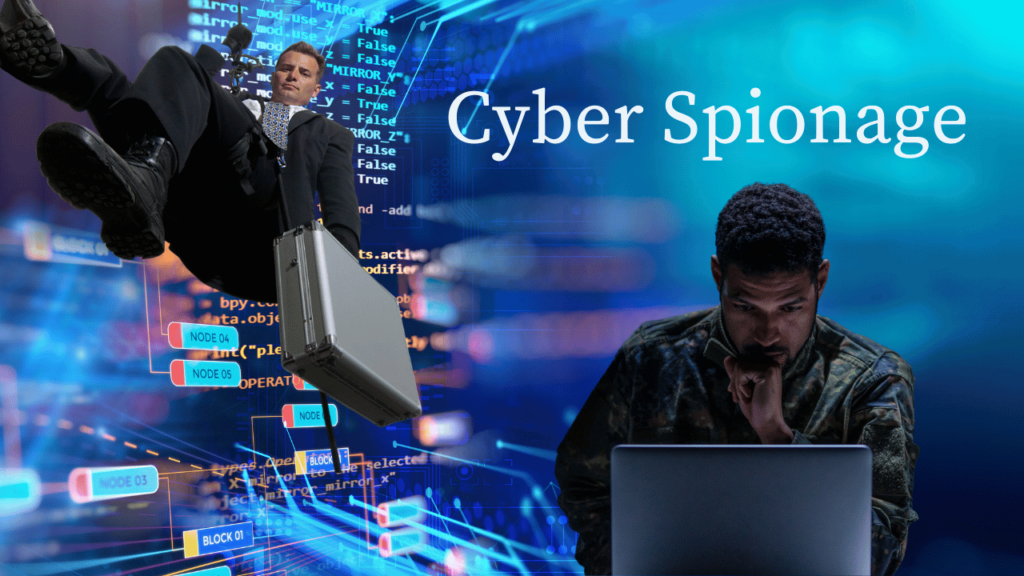As the hacking case against Mirror Group Newspapers continues in the United Kingdom, is a good time to continue the conversation about the limits of personal and public life from notorious people, like actors, politicians and even social activist. This past june, the High Court started a seven-week long trial into allegations from Prince Harry and others that their phones were hacked by journalists from Mirror Group Newspapers (MGN).
Large enterprises, government agencies, academic institutions, think tanks, and other organizations with significant intellectual property and technical data that can provide another organization or government a competitive edge are the most frequent targets of cyber espionage.
But now, everybody can be relevant, thanks to social media platforms a normal person can the same share political as the Duke of Sussex can be start with a video on you tube or photos on Instagram: welcome the era where digital landscapes permeate every aspect of our lives, the emergence of cyberspace has opened new doors for political and personal activism that make influencers a target. While the internet empowers individuals to voice their concerns and opinions, it also exposes them to potential risks, particularly in the realm of cyber espionage.
In this article I focus on the strategies that mass media, governments and companies are using to explode personal and professional activities of revelant people, either be a influencer or a political activist, they often face targeted cybersurveillance. By examining real-life examples from Europe, I want to uncover the gravity of this issue and the challenges it poses to democratic processes and your personal digital privacy.
The Rising Tide of Cyberespionage:
To simplify the topic, I understand that cyberespionage is the action of gathering of sensitive information through digital means, for different reasons. Given its inherent secrecy and diverse range of potential operations, providing a specific definition of cyber espionage is challenging. It can be executed on a small or large scale, with varying degrees of sophistication, and it can target anyone, from a single user to an entire region.
But If I think about something is the focus on sneaky tactics.
Unlike other attack types like ransomware, cyber espionage often tries to go undiscovered throughout the whole attack lifecycle. The offenders could take extraordinary steps to conceal their identities, goals, and plan of action. Custom malware and zero-day exploits are often utilized, which antivirus software finds challenging to identify for not saying they cannot.
Like in the movies when the main character got access to the computer of Evil Entreprises and got all the data in a USB stick, cyberspies try to gain access to the following resources:
- Data and activities related to either personal or professional information.
- IP related to academic research, such as product specifications or designs
Salaries, compensation structures, and other sensitive financial and operational data of the organization. - Lists of clients or customers and payment methods
Corporate objectives, strategic plans, and marketing strategies
Strategies, allegiances, and communications in politics or social activism. - Military information
Cyber espionage can, however, be distinguished from other hacks by several recurring characteristics:
State Motivations:
State actors and malicious organizations leverage our digital world to undermine political systems and target individuals who challenge the status quo or to uncover what other nations plan regarding their public and economic policies. In Europe, numerous cases of cyber surveillance against political activists have come to light, shedding light on the extent of this issue.
Governments worldwide are known for using the Pegasus spyware. Pegasus was developed by the Israeli company NSO Group and is allegedly used by various governments to monitor political activists and dissidents. The spyware infiltrates smartphones, allowing attackers to remotely monitor conversations, access personal data, and even activate the device’s camera and microphone. European countries like Hungary and Spain have been embroiled in controversies over the use of Pegasus against activists, raising serious questions about state-sponsored surveillance.
The emergence of sophisticated espionage programs like Pegasus has heightened concerns about privacy violations and a range of sophisticated tools and malware that can be used for surveillance and espionage purposes. While it’s challenging to compile a comprehensive list of all apps and malware used by governments, some notable examples have come to light in recent years.
It’s essential to note that the use of these tools may vary from one country to another and from one intelligence agency to another. This variability is one of the main reasons we launched the PRVCY project to assist you in protecting your digital life. Governments have access to a wide array of tools and techniques for various purposes, making digital privacy and security a paramount concern.
Protests in the Digital Age:
In the early 2010s, a prominent group known as “Anonymous” initiated cyber espionage and hacking campaigns against governmental institutions worldwide as a means of protest. This collective aimed to expose issues and challenge the status quo through digital means.
More recently, another group, “Asylum Ambuscade,” has been targeting European government personnel involved in aiding Ukrainian refugees during the lead-up to the Russian invasion. In this operation, cyber attackers utilized spear-phishing techniques to pilfer confidential information and gain access to webmail credentials from official government webmail portals.
One notable exemplar of this digital protest movement is Julian Assange and his creation, WikiLeaks. Julian Assange, the mastermind behind WikiLeaks, significantly advanced the concept of digital whistleblowing. Through this platform, Assange and his team unveiled classified documents, revealing the concealed activities of governments and institutions worldwide. However, these actions also made Assange a primary target for surveillance and cyberattacks, as evidenced by the breaches of his own privacy and the subsequent legal battles he encountered.
Financial reasons:
There’s been a constellation of financially motivated cyber espionage to exploit the financial situation of a notorious person, could be for blackmailing the person, finding compromise data or the government using to follow up taxes responsibilities.
Germany is a big target of spying and cyber attacks by foreign governments such as Turkey, Russia and China, for technical and industrial purposes, now that the technological race is on, goverments are competing to bring new innovate solutions, even if sometimes that means to sabotage critical infrastructure.
Industrial espionage costs German industry billions of euros each year, with small- and medium-sized businesses often the biggest losers, the BfV domestic intelligence agency said in its 339-page annual report.
Gossip and discredit:
When you’re a notorious person, not everybody would like, especially if you are getting attention for the right reasons like explaining political, economical and digital situations; so media like the The Mirror in UK help governments and companies to discredit opinion leaders. Could be making public an affair or sharing intimate photos, the idea is to re focus the attention of the person into their personal life.
What are the types of digital techniques?
Governments, media companies and people with knowledge have access to a range of sophisticated strategies like social engineering tools and malware that can be used for surveillance and espionage purposes. While it is challenging to provide an exhaustive list of all the apps and malware use, several notable examples have come to light in recent years. It’s important to note that the use of these tools can vary between different countries.
Here are a few examples of malicious apps:
Especially for companies
the supply chain attacks are a sophisticated cyberespionage group’s go-to weapon of choice. In this kind of assault, a threat actor will try to compromise a target organization’s reliable partners, suppliers, or vendors. This is frequently performed by inserting backdoor code into a good or service the target already utilizes. This is a very successful way to get past even the most sophisticated cyber defenses, and identifying the attack can be very challenging.
Privacy Concerns and Policy Implications
Explaining the techniques you can figure out why I’m so concerned about to protect you and me from surveillance and if is not obvious is because by the way that people are using their phone and computer as a open journal of sensitive personal, financial and political data these tools and malware raises significant ethical and legal concerns.
Surveillance technologies should be subject to transparent oversight and adhere to strict guidelines to ensure that they are used lawfully and responsibly, respecting individuals’ privacy and human rights. The rampant use of Cyber surveillance against political activists raises important questions about privacy rights and the role of governments in protecting individuals’ digital freedoms. It is crucial to strike a balance between national security and civil liberties, while enacting robust legislation and implementing advanced Cyber security measures to safeguard against Cyber espionage.
Even if we care about the prime minister affair with the famous play boy model (just joking), are more the times when governments are using these tools against us that political activist collecting data of illegal activities. The realm of political activism in Europe is increasingly intertwined with the digital domain, exposing individuals to the perils of Cyber espionage.
#PRVCYTipps
Remember your computer and smartphone were design to collect as much as information about you, you don’t have to be a notorious person to be monitor, even if you work on a large scale company, the communication and ideas you have about work can be a source of valuable information for the competition.
Be mindful about the conversations that you have near your phone or on text messages.
Big tech companies are working in collaborations with governments looking into key words by voice and text recognitizion: “Planning to close an street for a protest” or “I will burn the congress down” are easily recognize by computer systems and might get you as a target.
Storage your sensible information in offline devices and don’t share via email, or worst we transfer. If you are target for cyberespionage your online activity will be monitor, and every document and communication intercept. If you have a business project or are working in a company, be mindful about with whom and how you talk about your work ideas and the progress.
I will repeat myself again again and again, but don’t trust that much your operative system. As I mention before your phone and computer are already design to work against you, there are so much tipps with the step by step that I can’t explain here, so get our Transform course for your phone and the Superior course for the computer and protect yourself with our tips, strategies and devices focus on your digital security.





